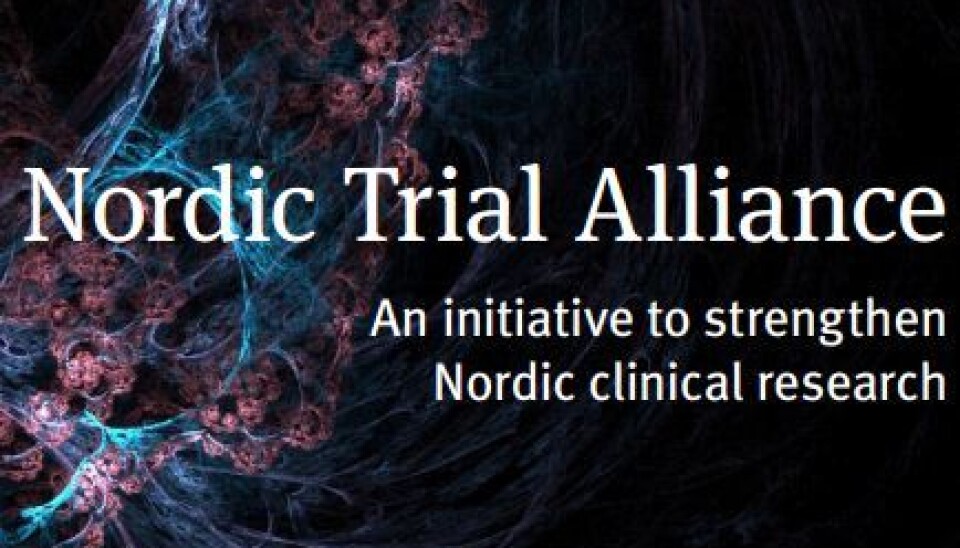An article from NordForsk

Nordic initiative on multi-centre clinical studies
The number of clinical studies conducted in the Nordic countries has declined dramatically in recent years. A new Nordic initiative will counter the decreasing trend.
Denne artikkelen er over ti år gammel og kan inneholde utdatert informasjon.
The Nordic Trial Alliance held its first conference in January in Copenhagen. It was a new and promising start for the new Nordic initiative on clinical studies. T
he Nordic Trial Alliance, an initiative associated with the Nordic Council of Ministers’ programme on sustainable Nordic welfare, is designed to increase cooperation on multi-centre clinical trials in the Nordic countries.
NordForsk will host the secretariat for coordinating the collaboration project, which is entering a three-year pilot phase.
The number of clinical studies conducted in the Nordic countries has declined dramatically in recent years.
Many clinical studies are instead carried out in other countries, where costs are lower and there is a far larger patient base available compared to the Nordic countries.
This may have potentially negative consequences for the Nordic countries’ international position in medical research, and could also lead to a situation in which Nordic patients are no longer guaranteed access to the latest treatment methods.
Fortunately, this trend can be reversed, believes Project Manager Pierre Lafolie of Karolinska University Hospital in Stockholm.
“The Nordic countries are not taking full advantage of their potential for multi-centre clinical trials,” asserts Lafolie.
Clinical studies require large patient groups, which can be difficult to obtain at a national level. With roughly 26 million people, the Nordic countries can offer a competitive population base for clinical studies – as well as very high-quality biobanks and health registries and stable patient populations, according to Lafolie.
"The Nordic countries also have similar regulatory frameworks, and public confidence in the health care systems is high," he adds.
The Nordic Trial Alliance was established to counter the decreasing trend in clinical studies. The initiative’s main objectives are to strengthen Nordic collaboration in this sphere by disseminating information and refining existing initiatives on clinical research, as well as to generate greater interest in these studies in political spheres and the research community alike.
A welcome initiative
There is a great need for Nordic cooperation on clinical studies, and the more than 90 conference participants considered the Nordic Trial Alliance to be an important first step.
The conference in January focused on gauging the interest in Nordic cooperation on multi-centre clinical trials, and finding out what the research community thinks such cooperation should prioritise.
The participants agreed it was important to act quickly to launch specific measures and projects, recommending that the Nordic Trial Alliance should establish a website with relevant scientific content as soon as possible.
It would also be beneficial for the Nordic Trial Alliance to promote harmonisation of regulations and application processes in the Nordic countries, and to take action to spread information about the importance of Nordic multi-centre clinical trials to politicians, decision-makers and patient organisations.
The conference laid the foundation for closer cooperation in the Nordic countries, and project manager Lafolie was pleased with the outcome, saying, “We got the response we had hoped for. We have received lots of good input, and we will continue the close dialogue with the various interested parties. We will incorporate this input into a strategy for how to work most productively within the Nordic Trial Alliance.”

































